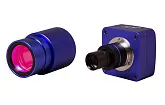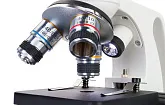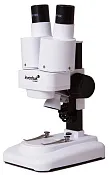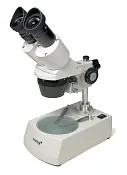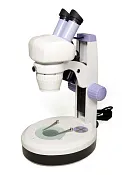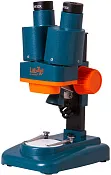Is it worth purchasing a stereo microscope?
A stereo microscope is a very popular optical tool among radio amateurs, jewelers and explorers of the micro world. Its main distinctive feature is that it delivers a three-dimensional image. Sometimes stereoscopic microscopes are confused with regular binocular microscopes, but they have different optical designs.
In a classic microscope with a binocular head, only an objective lens is used for forming an image. The received image is just duplicated to two eyepieces. The transmitted image is only one, but you can view it with both eyes simultaneously. In stereo microscopes, two objective lenses are used for forming an image - one per each eye. In fact, we receive two independent optical channels, enabling us to observe a stereoscopic image. This optical scheme is called Greenough scheme. It has recently become widespread.
Children and adolescents enjoy working with a stereo microscope due to its simple operation. This is not surprising: you can study coins, rocks and any other artefacts of the world around us that can be of interest to a young explorer. A stereoscopic image is essential in studying electronic circuits, watch mechanisms, crystals, minerals and artworks. It allows for detailed studying of large objects' structure and detecting the surface defects. Such a stereo microscope is recommended for purchase to an amateur microbiologist. It will be very useful for preparing microscope slides.
Levenhuk ST series microscopes will be perfect for any purpose. The series includes four stereoscopic microscopes, which differ in magnification range, working distance and type of illumination. The microscopes are designed for amateur and professional users and also will come in useful for a home hobby.
Popular stereo microscopes:
Any reproduction of the material for public publication in any information medium and in any format is prohibited. You can refer to this article with active link to levenhuk.com.
The manufacturer reserves the right to make changes to the pricing, product range and specifications or discontinue products without prior notice.

